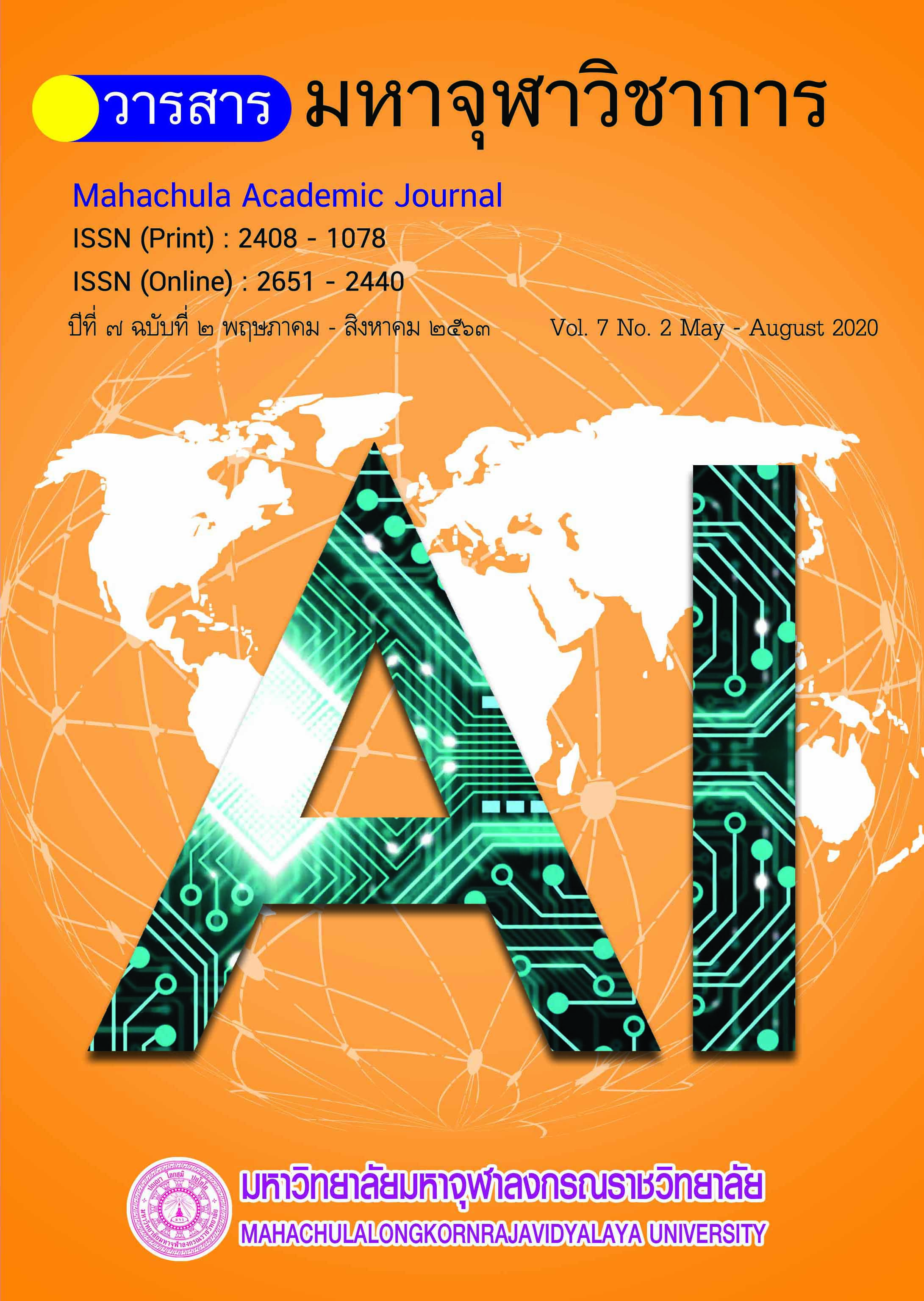Development of Teaching Critical Reading Skills Through Reading Strategies for Enhancing Readers Based Linguistics Synthesis
Main Article Content
Abstract
The aims of this academic paper were to study the development of teaching critical reading skills through multi - reading strategies based Linguistics sysnthesis, as the key elements through available reading techniques. In addition, this finding purposes the ways of successful readers regulated, they will supplement teachers and students in getting various types of reading methods of different texts in a conceivable way. Among the development of reading strategies of Goodman, Weir and Kintsch’s theories, furthermore, critical reading strategies model was conducted by using various materials form through content analysis. Particularly, the materials used in this study were made available for readers extensively which were suitable for both learning achievement and reading fluency, the data analysis were guessing, small groups reading, reading alouds, skimming, scanning, summarizing, results. Either phrase reading, semantics expectancy, question, concept formation through thinking, process, and knowledge structure, or motivation to read apparently. The results from this study may visually provided learners with tools, in order to help learners develop critical reading skill and play sustains student’s attention span and their reading goals.
Article Details
References
Crystal, D. English as a1 Global Language, 2nd ed. Cambridge, UK: Cambridge University Press, 2003.
Chen Min. Interactive English Reading Community Based on Social Network Sites. Sino-US English Teaching. Vol.12, No. 5 (2015): 341-346.
Goodman, K. S. Analysis of oral Reading Miscues. Applied Psycholinguistics. Reading Research Quarterly. 5, (1969): 9-30.
Grellet.F. Developing Reading Skills. NY: Cambridge University Press. 1999.
Grellet.F. Developing Reading Skills: A Practical Guide to Reading Comprehension Exercises Cambridge University Press. 1981.
Guignon, A. Reading aloud: Are students ever too old. [Online]. Retrieved: http://www.educationworld.cornia curr/curr081.shtml [5 October 2019].
Hillerich, R.L. The Principle’s Guide to Improving Reading Instruction. Massachusetts: Allyn and Bacon. Inc. 1983.
Hood, S., Solomon, N., Burns, A. Focus on Reading, Sydney: NCELTR, 2002.
Hulya K. Improving Reading skills through effective Reading Strategies. Akdeniz Language Studies Conference. Procedia-Social and Behavioral Science. 70 (2013): 709-714.
Jitlada Kumnuansin, Jintavee Khlaisang.“Development of a model of Thai literature Hypermedia electronic Books with social Media based on the Reader-Response Theory to enhance Reading Comprehension of elementary School Students. Procedia - Social and Behavioral Sciences. 1701 (2015): 1700 – 1706.
Joan M. Chambers, Christy L. Radbourne. Developing Critical Literacy Skills through Using the Environment as Text. Language and Literacy. Vol. 17, Issue 1, (2015).
Lane, H. B., & Wright, T. L. Maximizing the effectiveness of reading aloud. The Reading Teacher. 60(7), (2007): 668-675.
Meraj Talebi, Amir Marzban. The Effect of Teaching Critical Reading Strategies on Advanced Iranian EFL Learners' Vocabulary Retention. Theory and Practice in Language Studies, Vol. 5, No. 3, (2015).
Morgan, P. L., & Fuchs, D. Is There a Bidirectional Relationship Between Children's Reading Skills and Reading Motivation? Exceptional Children, 73(2), (2007): 165–183.
Norbaiyah A., Roose N Subki , Farah H. Ahmad J. and Juhaida Ismail. The Important of Teaching Critical Reading Skills in a Malaysian Reading Classroom. The 2014 WEI International Academic Conference Proceedings.
Saeed Rezaei, Ali Derakhshan and Marzieh Bagherkazemi. Critical Thinking in Language Education. Journal of Language Teaching and Research. Vol. 2, No. 4, (2011): 773.
Waring, R., & McLean, S. Exploration of the Core and variable Dimensions of extensive Reading Research and Pedagogy. Reading in a Foreign Language, Vol. 27, No. 1, (2015): 160-167.
Walker, B.J. Supporting Struggling Readers. [Online]. Retrieved from: http://0-www.ebrary.com.library.acaweb.org, [2 April 2019].
Weir, C.J., Hughes, A. and Porter, D. Reading Skills: Hierarchies. Implicational Relationships and Identifiability. Reading in a Foreign Language, 7, (1990): 505-10.
Woolley. G. Reading Comprehension. Assisting Children with Learning Difficulties. [Online]. Retrieved from: http://www.springer.com/cda/content/document/cda_downloaddocument/9789400711730- c1.pdf?SGWID=0-0-45-1158048-p174102871. (2011). [1 December 2019].
Worthington, J. D. Teaching Children to Read: Guidance and Research. Hauppauge, N.Y.: Nova Science Publishers, Inc, 2013.


